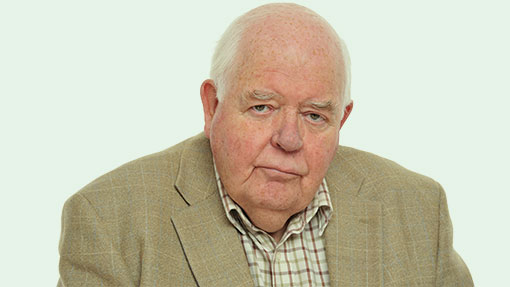Opinion: Euro elections are ‘virtually irrelevant’

If opinion polls are to be believed, Nigel Farage’s UKIP will win more votes than any other party at next week’s European elections.
Will that mean the UK will be represented in Europe by many MEPs whose prime objective is to leave the European Union? If that turns out to be the case, what will it mean to this country’s farmers? More urgently – if such a prospect fills you with either dread or pleasure – what can you do about it on 22 May?
Let’s be honest. The answer to the last question is: not a lot. Even if all farmers and farmworkers voted (which they won’t), we account for only about 1% of the population. If the proportion of farming people who do vote matches the national turnout at the last Euro election – and it seems unlikely that next week’s turnout will be higher – fewer than 40% of us will bother to visit a polling station.
Clearly the overall farm vote will be split between the parties, but even if that were not so and one group of candidates promised everything our industry wanted, supposing that were possible, the best they could hope for from agriculture would be insignificant in a national context. The political parties are capable of making similar calculations and that is the reason you have had few, if any, campaigning cars down your farm drive in recent weeks.
What do you think about this subject? Have your say on our website forums
But to return to my first question: what difference might a bigger bunch of UKIP MEPs make to our industry? Again, not a lot. Because unless the UK’s apparent anti-EU (or is it just anti-immigration?) mood was spread equally across the 28 member states – and there is some evidence of it in a few member states, none of which are allies of UKIP – the UK’s contingent would make up a tiny minority of the Parliament. Yes, they could be an irritant to the institution – like a mosquito biting an elephant’s backside – but it takes rather more than that to make such a large creature change its behaviour.
Therefore, it is how the rest of Europe votes and the overall balance of power that will have the greatest influence on our industry. The pink and green tendencies have been in the ascendency in the past and are forecast to win at least two-thirds of seats again this time. In which case, we can expect more restrictive regulations to add to those already imposed. And I for one would wish UKIP MEPs who are returned to Brussels success in thwarting such ambitions.
But the UK’s influence in Europe has been so diluted by the expansion of the EU that how we vote next week will be almost irrelevant. The British electorate has worked that out for themselves; hence the anticipated low turnout. These days more and more people are expressing their views and gripes via social media, Facebook, Twitter and the like, which seems to some a more immediate and perhaps more effective way to influence opinion.
Furthermore, in today’s, flat-renting, mobile society, a significant proportion of what should be the “electorate” are not even registered on an electoral roll. By definition, exact numbers are unknown but many move from one temporary dwelling to another regularly and don’t bother getting on any list. The only thing that might persuade them to get involved in politics would be if it were possible to vote by phone. But there’s not much sign of that happening.
Meanwhile, where European politics is concerned, I’m afraid, apathy rules, OK.

